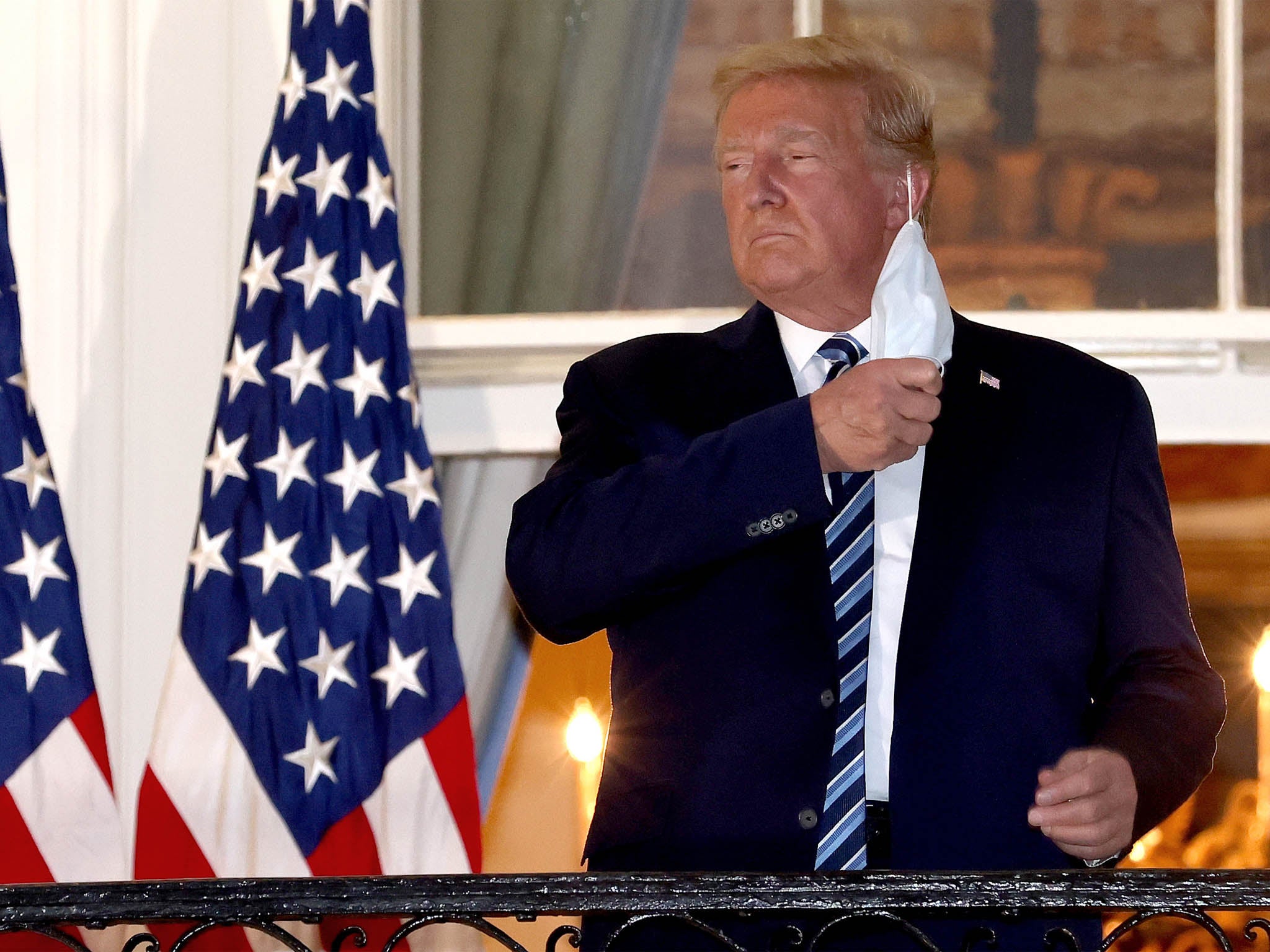The Independent's journalism is supported by our readers. When you purchase through links on our site, we may earn commission.
Hong Kong Americans are voting for Trump — even though they don’t share most of his values
Many Asian Americans are willing to cast a ballot for the controversial Republican president because of his ‘tough on China’ stance — and pro-democracy publications in Hong Kong have endorsed his re-election

Your support helps us to tell the story
This election is still a dead heat, according to most polls. In a fight with such wafer-thin margins, we need reporters on the ground talking to the people Trump and Harris are courting. Your support allows us to keep sending journalists to the story.
The Independent is trusted by 27 million Americans from across the entire political spectrum every month. Unlike many other quality news outlets, we choose not to lock you out of our reporting and analysis with paywalls. But quality journalism must still be paid for.
Help us keep bring these critical stories to light. Your support makes all the difference.
Trump’s cold war with China has invigorated one unlikely group of voters: Hong Kong Americans.
Asian American voters generally lean Democratic, with 79 percent voting for Hillary Clinton in 2016. But Matthew Li, a 44-year-old actuary living in Virginia, will be voting for a Republican president for the first time since arriving in the US over 20 years ago.
“Trump has been hard on China,” he explained to me. “He signed the Hong Kong Human Rights and Democracy Act. He banned TikTok. He sanctioned Chinese government officials. His dedication to Hong Kong’s autonomy transcends beyond words and into real action.”
For similar reasons, Bay Area tech worker Cyrus Cheung will be re-casting his vote for Trump, with even more surety than he did in 2016. “A weakened China means a more autonomous Hong Kong,” he explained. He does have misgivings about the president, from the mishandling of the pandemic to the absurd promises of a border wall. But ultimately, Cheung’s voter priority is foreign policy in the interests of his home city. It’s a belief shared by all the pro-Trump Hong Kong Americans I spoke to — no American president has ever forcefully stood up against Chinese hegemony.
Both Li and Cheung also cite the pro-Trump sentiment shared by some circles of the Hong Kong pro-democracy movement as a major factor for their enthusiasm. In November 2019, protesters in Hong Kong carried “Make America Great Again” signs and posters that read “President Trump, please save Hong Kong” while singing “The Star-Spangled Banner.” When Trump referred to Covid-19 as the “China Virus” in March, Hong Kong netizens reacted with “likes”, “haha’s” and “loves” on social media. The few remaining pro-democracy publications in Hong Kong, such as The Apple Daily, endorse the president’s re-election campaign.
These Trump supporters are worried that a Biden presidency may soften American anti-China rhetoric, allowing China to gain more power on the world stage. Li argued that the Obama administration displayed “all talk and no action” American resistance, allowing China to militarize the South China Sea with little consequence (despite China continuing these activities under the Trump administration.) Comparatively, he believes that Trump has successfully strong-armed China — its economy has shrunk, and unfavorable views of the country have reached historic highs globally.
For the past four years, I’ve grappled with the complex combination of finding solidarity with my hometown’s struggles and existing as a young, female, minority immigrant in Trump’s America. It’s been jarring to scroll through my social media newsfeeds: old classmates’ selfies of masked faces tagged with #chinavirus are juxtaposed with widely circulated shaky footage of yet another racist attack in the US. The optimistic naïveté I had for America’s freewheeling opportunities when landing in LAX seven years ago has transformed into a weary wariness for racism, xenophobia, and sexism. Meanwhile, my hometown has become unrecognizable, with friends and family packing up their lives and moving to whatever country will welcome them.
My sense of displacement has been exacerbated by hearing these voters dismiss the ironic parallels between Trump’s America and Hong Kong under Beijing’s control. The images of tear gas used on Black Lives Matter protesters were, to me, reminiscent of the canisters smoking up Hong Kong’s familiar neon backdrop. The voter suppression efforts ahead of the 2020 election reminded me of how Hong Kong officials delayed the Legislative Council election by a year, citing Covid-19 concerns. Both places are waging war on press freedom.
When speaking to these voters, it was clear to me that they recognized these contradictions. In fact, Li will be voting blue down the ballot — “I buy the Democratic Party’s values more,” he told me — despite Republican senators such as Ted Cruz and Marco Rubio actively championing the Hong Kong pro-democracy cause. But it is desperation and fear, stemming from a mistrust of Biden’s record, that is driving their selective dismissiveness and ignorance of Trump’s authoritarian tendencies.
“Trump is our last chance,” Cheung said.
“But do you really think Trump cares about Hong Kong?” I asked.
“No,” he replied without hesitation. “But there’s a Cantonese phrase that’s defined the Hong Kong protests — laam chau: we burn, you burn with us. I know he’s not concerned about human rights. But as long as he takes real action against China, I don’t care if Hong Kong is just a pawn in the trade war.”
Given the futility of the Hong Kong pro-democracy movement, I understand Hong Kong Americans’ desire for any challenger to Xi's regime. But ultimately, China has enacted Hong Kong’s national security law criminalizing protests, seditious speech, and calls for the city’s autonomy — all under Trump’s watch. With Trump's America being far from an emblem of democratic freedom, it is dangerous to hope that he can be Hong Kong’s savior.
Join our commenting forum
Join thought-provoking conversations, follow other Independent readers and see their replies
Comments